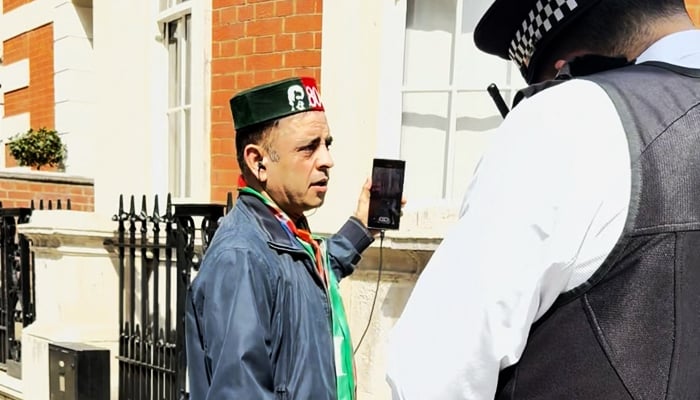Changes in trusts laws in Pakistan: new registration requirements and challenges
Kabraji & Talibuddin



 Pakistan
Pakistan June 30 2022
In 2020, Pakistan’s colonial era trusts law i.e., the Trust Act 1882, was repealed and new trusts legislation was enacted by each of the four provinces of Sindh, Balochistan, Punjab and Khyber Pakhtunkhwa and the Islamabad Capital Territory (
ICT).
The new laws were enacted in response to recommendations by the Financial Action Task Force to adopt measures to address money laundering and terrorist financing risks posed by trusts, including foreign trusts, and waqfs (a form of Islamic charitable trust) in Pakistan.
Under each of the new provincial laws, the legal framework surrounding the registration of trusts has changed considerably to include, essentially, new disclosure and record keeping requirements and enhanced measures for data collection and inspection by government authorities.
Registration and record keeping requirements
Under the Trust Act 1882, the trust deeds of immovable property were required to be registered under the Registration Act 1908 with the provincial authorities in the district where the property was located. A verification exercise prior to the registration was not specified or undertaken. There was also no requirement for movable property trusts to be registered.
Under the new laws, every trust of both movable and immovable property is required to be registered. The registration is permitted following a verification by the registering authority of the details supplied by the trustee in the application for registration. These include particulars relating to the purpose and author of the trust, the trust property, the trustees, beneficiaries and any other natural persons exercising ultimate effective control over the trust.
Once the trust is registered, the Sindh and Khyber Pakhtunkhwa laws require that the registration be renewed every year. In Sindh, a new category of trusts called “specialized trusts” has been exempted from this requirement. This category was created by amendments to the Sindh, Khyber Pakhtunkhwa and ICT laws in 2021 and includes, inter alia, trusts created for the establishment of collective investment schemes, private funds, pension funds, real estate investment trusts, exchange traded funds, private equity and venture capital funds, debt securities trusts, trusts in relation to any security issued by the federal or provincial governments through capital markets, provident and gratuity funds, and employee benefit trusts. Specialized trusts also entail a different registration process; the trustee is required to submit a no objection certificate from the relevant regulator which would contain the particulars of the trust for verification.
The new laws have also brought existing trusts within the net. With the exception of specialized trusts in Sindh, Khyber Pakhtunkhwa and ICT, all trusts created under the Trust Act 1882 or registered under the Registration Act 1908 or otherwise in the four provinces and ICT are required to be re-registered within a specified time in order to remain functional.
As for the trustee’s record keeping obligations, the new laws broadly require the trustee to maintain proper accounts of the trust property and its income, including a third party audit of accounts, and submission of financial reports to the registering authority every year. Any change related to the assets of the trust, persons associated with the trust, or otherwise must also be reported. The records and documents of the trust are to be retained for at least five years after the trustee ceases to be involved with the trust.
Practical challenges
The new laws require major tidying up amendments to fill the gaps around registration requirements and the scope of the new regime. For instance, each of the provincial laws initially provided that the author, trustee and beneficiary of the trust could only be a “natural person”. This has generated much confusion around the status of new and existing trusts with which non-natural persons are associated and whether they are covered by the amended regime. The “natural person” condition was removed in the Sindh, Khyber Pakhtunkhwa and ICT laws by amendments in 2021. However, under the Balochistan and Punjab laws, the position still remains unchanged. Also, the ordinance by which the ICT trusts law was amended in 2021 has now lapsed and would need to be repromulgated.
Further, the registration process under the new framework has not been streamlined and applicants in different provinces are facing various hurdles in complying with the new requirements. For instance, in Sindh and Khyber Pakhtunkhwa, the author of the trust and the trustees or their authorised representatives are required to present themselves in person and provide thumb impressions for registration, which delays the process where foreign parties are involved. The Sindh and Khyber Pakhtunkhwa trust laws also require that the credentials of a foreign party associated with the trust be verified through the relevant embassy of Pakistan. In such a case, the prescribed time periods for verification are automatically disabled.
The new application process also requires each member of the trust to provide criminal affidavits declaring that they are not involved in any criminal activity and the trust deed does not contain any provisions contrary to the trusts laws. For trusts created in the context of foreign financing, foreign lenders have been particularly hesitant to provide such affidavits as their internal credit departments are generally unwilling to approve them. Separately, delays are also being seen due to the burden of applications submitted for both new and existing trusts at the same time.
Kabraji & Talibuddin -
Izhar Hameed Memon,
Maria Ahmad and
Syed Ali Bin Maaz









































